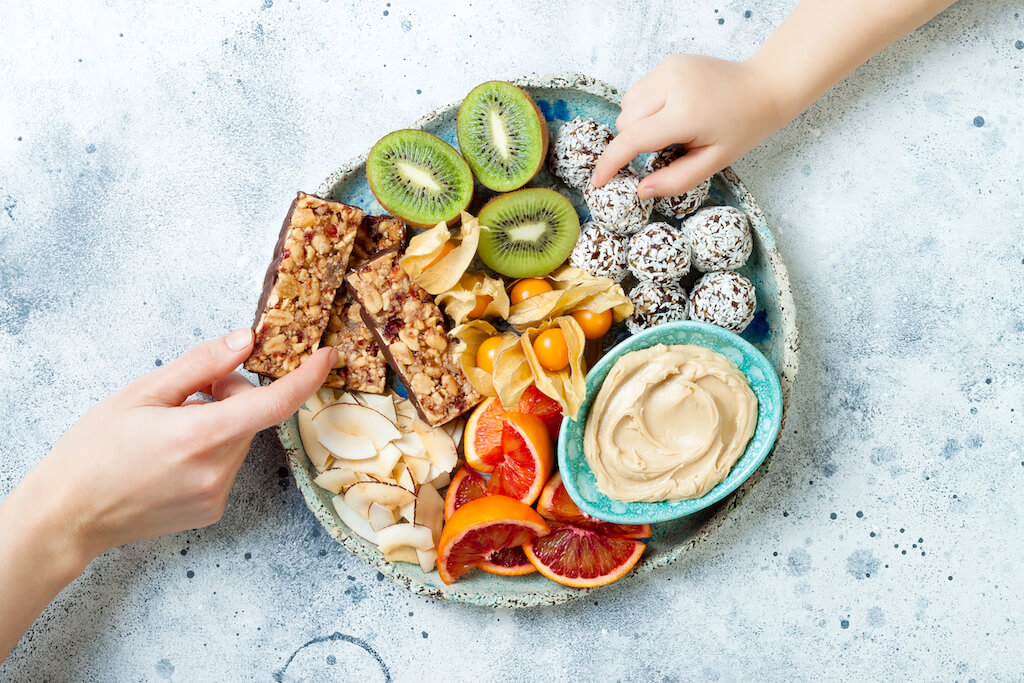
Are you struggling with emotional eating and finding it hard to lose weight?
Emotional eating is a common challenge that many people face, and it can be difficult to overcome.
The good news is that there are practical strategies you can use to develop a healthier relationship with food and achieve your weight loss goals.
Here are 21 ways to overcome emotional eating and lose those stubborn pounds. From meal planning to self-care, these tips can help you make positive changes in your life and achieve long-term success.
1. Keep a Food Journal
Keeping a food journal is an excellent way to identify your eating patterns and emotional eating triggers.
When you write down everything you eat and drink throughout the day, you can easily see if you’re reaching for food when you’re stressed, anxious, or bored. This information can help you make changes to your diet and develop healthier habits.
In addition, writing down your food intake can help you stay accountable to yourself and track your progress as you make changes to your eating habits.
2. Practice Mindful Eating

Mindful eating means paying attention to the experience of eating, including the taste, smell, texture, and appearance of your food.
By slowing down and focusing on your food, you can enjoy the experience more fully and recognize when you feel full.
When you eat mindfully, you are less likely to eat in response to emotions or external cues, such as advertising or social pressure. This approach can help you make better food choices and reduce your overall calorie intake.
3. Identify Triggers
Emotional eating is often triggered by specific emotions, situations, or events. By identifying your triggers, you can develop strategies to avoid or manage them.
Some common emotional eating triggers include stress, boredom, sadness, and loneliness.
When you know what your triggers are, you can take steps to prevent emotional eating, such as engaging in stress-reducing activities or finding alternative ways to deal with boredom or loneliness.
4. Create Healthy Habits
Developing healthy habits is essential to overcoming emotional eating and achieving lasting weight loss.
Some healthy habits to consider include eating a balanced diet, exercising regularly, drinking plenty of water, getting enough sleep, and managing stress.
When you make healthy habits a regular part of your life, you are less likely to turn to food in response to emotions or other triggers.
5. Find Alternative Coping Mechanisms
Instead of turning to food when you’re feeling stressed, anxious, or bored, find alternative ways to cope with your emotions.
Some healthy coping mechanisms include exercise, meditation, deep breathing, journaling, or spending time with friends and family.
By developing a toolbox of healthy coping mechanisms, you can reduce your reliance on food and develop healthier ways to manage your emotions.
6. Plan Your Meals
Planning your meals can help you avoid making impulsive food choices based on emotions or cravings.
When you plan your meals in advance, you can make sure you’re eating a balanced diet that supports your weight loss goals.
Consider meal prepping on the weekends so you have healthy meals and snacks on hand throughout the week. This can also save you time and money in the long run.
7. Keep Healthy Snacks on Hand

Having healthy snacks readily available can help you avoid reaching for unhealthy options when you’re hungry or stressed.
Consider keeping fresh fruit, vegetables, nuts, and other healthy snacks on hand at home and at work.
This can also help you avoid vending machines or convenience stores, where unhealthy snacks are often readily available.
8. Avoid Skipping Meals
Skipping meals can lead to overeating later in the day, as well as increased cravings and impulsiveness around food.
Aim to eat three balanced meals per day and consider adding healthy snacks if needed.
This can help keep your energy levels stable throughout the day and prevent overeating due to extreme hunger.
9. Get Enough Sleep

Getting enough sleep is essential for overall health and can also help you overcome emotional eating.
When you’re sleep-deprived, you’re more likely to experience cravings and make impulsive food choices.
Aim to get seven to nine hours of sleep per night and consider establishing a consistent sleep routine to promote better sleep quality.
10. Focus on Progress, Not Perfection
It’s important to remember that change takes time and effort, and it’s okay to make mistakes along the way.
Instead of striving for perfection, focus on making progress towards your goals.
Celebrate your successes, no matter how small, and learn from your mistakes. This can help you stay motivated and committed to your weight loss journey.
11. Practice Portion Control
Portion control is key to achieving and maintaining a healthy weight.
Consider using measuring cups or a food scale to measure proper portions. You can also use visual cues, such as filling half your plate with vegetables, to help control portion sizes.
When you practice portion control, you can enjoy all types of foods in moderation while still achieving your weight loss goals.
12. Choose Nutrient-Dense Foods
Nutrient-dense foods provide a high amount of nutrients relative to their calorie content.
Focus on incorporating plenty of fruits, vegetables, whole grains, lean proteins, and healthy fats into your diet.
These foods can help you feel full and satisfied while also providing the nutrients your body needs to function properly.
13. Limit Processed Foods and Sugary Drinks
Processed foods and sugary drinks are often high in calories and low in nutrients.
These foods can also lead to blood sugar spikes and crashes, which can contribute to cravings and overeating.
Limiting your intake of these foods can help you achieve and maintain a healthy weight, as well as improve overall health.
14. Manage Stress
Stress is a common trigger for emotional eating, so it’s important to find healthy ways to manage stress in your life.
Consider practicing relaxation techniques, such as meditation or deep breathing, or engaging in stress-reducing activities, such as yoga or exercise.
When you manage stress effectively, you’re less likely to turn to food for comfort.
15. Find Joy in Movement

Regular physical activity is essential for weight loss and overall health, but it doesn’t have to be a chore.
Find activities that you enjoy, such as dancing, hiking, or swimming, and make them a regular part of your routine.
When you find joy in movement, you’re more likely to stick with it over the long term.
16. Exercise Regularly
Regular exercise is an essential component of a healthy lifestyle and can help you overcome emotional eating.
Exercise can reduce stress, boost mood, and improve overall health.
In addition, when you exercise regularly, you are less likely to turn to food for emotional comfort.
17. Practice Self-Compassion
It’s important to be kind to yourself as you work to overcome emotional eating and achieve your weight loss goals.
Instead of beating yourself up over mistakes or setbacks, practice self-compassion.
Remember that change takes time and effort and that it’s okay to make mistakes along the way. Treat yourself with the same kindness and understanding that you would offer a friend.
18. Practice Self-Care

Self-care is essential for overall health and well-being, and can also help you overcome emotional eating.
Consider engaging in activities that make you feel happy and relaxed, such as taking a bath, getting a massage, or spending time with loved ones.
When you prioritize self-care, you’re more likely to feel positive and motivated on your weight loss journey.
19. Avoid Comparing Yourself to Others
It’s easy to compare yourself to others, especially when it comes to weight loss. However, this can be detrimental to your progress and mental health.
Instead of comparing yourself to others, focus on your own progress and celebrate your own victories.
Remember that everyone’s weight loss journey is unique, and there’s no one right way to achieve your goals.
20. Build a Support System
Having a supportive network of friends and family can make a big difference in overcoming emotional eating and achieving your weight loss goals.
Consider joining a support group or working with a weight loss coach for added accountability and support.
When you have people in your corner cheering you on, you’re more likely to stay motivated and committed to your goals.
21. Celebrate Non-Scale Victories

Weight loss is just one measure of success on your weight loss journey.
It’s important to also celebrate non-scale victories, such as fitting into a favorite pair of jeans or having more energy throughout the day.
These victories can help keep you motivated and focused on your progress, rather than getting discouraged by the number on the scale.
Conclusion
Incorporating these 21 practical tips into your daily routine can help you overcome emotional eating and achieve your weight loss goals. Remember that it’s okay to have setbacks along the way, and to be patient and kind to yourself.
Developing a healthier relationship with food takes time, but with dedication and effort, you can make positive changes in your life and achieve long-term success. So why not start today?
Try incorporating one or two of these strategies into your daily routine, and see how it can make a difference in your life.
